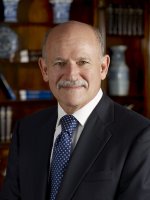New Technologies: Role in Diagnosing and Managing Obesity
Overweight and obesity rates continue to increase at a global level and some international agencies now consider the presence of severe obesity a diagnosable chronic disease. Screening populations for excess adiposity typically involves use of body weight and height indices such as body mass index. Identified individuals are now treated using a series of measures including lifestyle management advancing to pharmacotherapy and bariatric surgery. All of these areas are benefitting from the introduction of new digital technologies including advanced screening methods for quantifying adiposity, approaches for estimating energy and food intake along with physical activity levels, and telecommunication lifestyle programs for managing body weight. While many of these approaches are now part of the accepted evaluation and weight control management paradigm, others are still being critically evaluated for their practical and cost-effective application. This is an area of intense technology development and one that has important gaps that need to be filled. The presentation will cover these rapidly advancing areas of biomedical engineering.
Biography
 Steven B. Heymsfield, M.D. is Professor and Director of the Body Composition-Metabolism Laboratory at the Pennington Biomedical Research Center of the Louisiana State University System in Baton Rouge. Dr. Heymsfield stepped down as Executive Director of Pennington Biomedical in 2013 to assume his current position.
Steven B. Heymsfield, M.D. is Professor and Director of the Body Composition-Metabolism Laboratory at the Pennington Biomedical Research Center of the Louisiana State University System in Baton Rouge. Dr. Heymsfield stepped down as Executive Director of Pennington Biomedical in 2013 to assume his current position.
Dr. Heymsfield received a degree in medicine from Mount Sinai School of Medicine, and he completed his internship, residency, and fellowship in pharmacology at Emory University. He then joined the Emory University School of Medicine faculty, holding positions there including Associate Professor of Medicine and Assistant Director of the NIH-funded Clinical Research Unit. Expanding on his interests in obesity and metabolism, Dr. Heymsfield next moved to Columbia University, College of Physicians and Surgeons and there he held positions as Professor of Medicine and Deputy Director, New York Obesity Research Center at St. Luke’s-Roosevelt Hospital. He and his Columbia colleagues conducted wide ranging clinical studies on obesity with a focus on energy metabolism, body composition, and pharmacologic weight control management. Prior to his Pennington Biomedical position, Dr. Heymsfield was the Global Director of Scientific Affairs for the obesity group at Merck & Co.
Dr. Heymsfield has published more than 600 peer-reviewed papers covering topics such as obesity, malnutrition, cachexia, body composition, and caloric expenditure. His contributions to the study of human nutrition led to the TOPS Award from The Obesity Society, the Rhoads Award from the American Society of Parenteral and Enteral Nutrition (ASPEN), the Robert H. Herman Memorial Award, American Society of Nutrition (ASN), the George Bray Founders Award from The Obesity Society, and he was honored for his role in the FDA ban on ephedra, receiving the 2004 NYC Mayor’s Award for Science and Technology. Dr. Heymsfield was elected Fellow of The Obesity Society in 2014, and he is an honorary member of the American Dietetic and Chilean Clinical Nutrition Associations. Dr. Heymsfield is past-president of ASPEN and ASN and he is vice-president of The Obesity Society.
